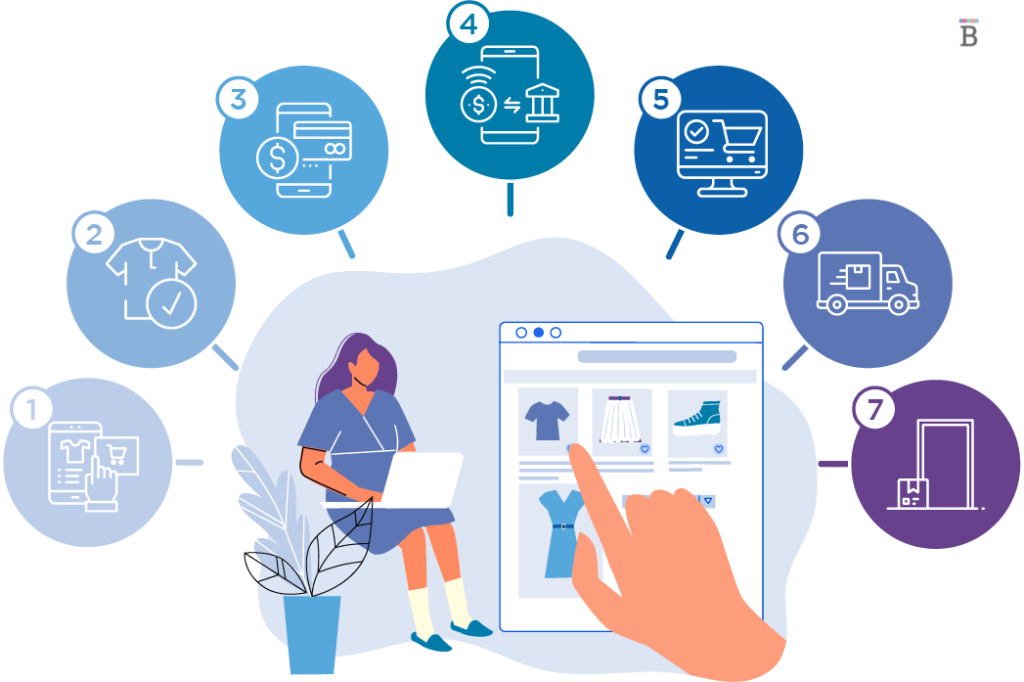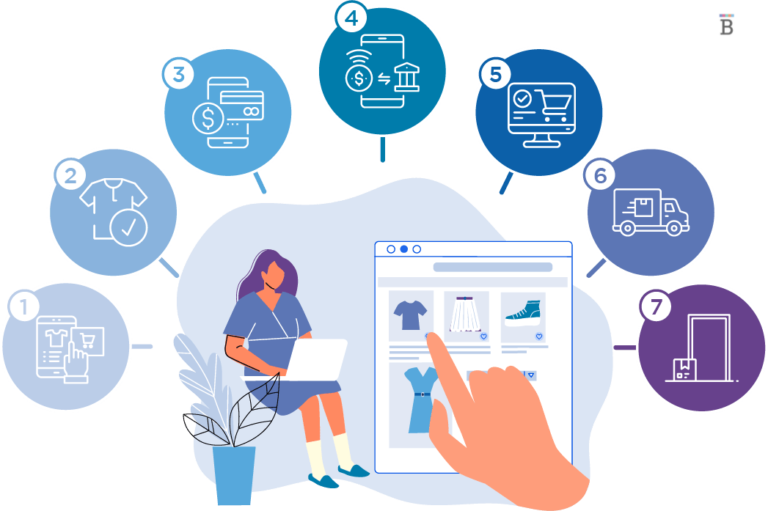The Ultimate Guide to Starting an Ecommerce Business in India – In recent years, the landscape of business has undergone a profound transformation, with the rise of ecommerce reshaping industries and economies worldwide. In India, especially, the ecommerce boom has opened up unprecedented opportunities for entrepreneurs to thrive in the digital marketplace. If you’re considering diving into the world of ecommerce, this comprehensive guide will walk you through every step of the journey, from understanding the basics to achieving success.
Starting an Ecommerce Business in India
| Section | Key Points |
|---|---|
| Understanding Ecommerce | Ecommerce involves online business transactions without physical storefronts. – Eliminates geographical limitations. |
| Types of Ecommerce Businesses | B2B, B2C, C2C, and other variations dictate target market and operational approach. |
| How Ecommerce Works | Core components: user-friendly website, secure payment gateway, efficient shipping. – Integration is crucial for a seamless shopping experience. |
| Benefits of Starting Ecommerce | Reach a global audience. – Flexible operations without physical constraints. – Cost-effective compared to brick-and-mortar. |
| Tips for Starting Ecommerce | Conduct thorough market research. – Choose a niche aligned with passions and target audience. – Craft a robust business plan. |
| Setting Up Your Ecommerce Business | Define business model and offerings. – Select the right ecommerce platform. – Design user-friendly website. – Integrate secure payment gateways. – Establish reliable shipping and fulfillment processes. |
| Marketing Your Ecommerce Business | Utilize SEO, social media, content marketing, and email campaigns. – Leverage digital marketing tools and analytics for strategy refinement. |
| Examples of Successful Ecommerce Businesses | Draw inspiration from global giants like Amazon and local successes like Flipkart. Study these examples for insights and innovation opportunities. |
| Conclusion | Ecommerce in India offers unique opportunities. – Understand fundamentals, conduct research, implement effective strategies. – Success requires dedication, adaptability, and customer value focus. |
Understanding Ecommerce

First and foremost, it’s essential to grasp the concept of ecommerce. Simply put, ecommerce involves conducting business transactions online, eliminating the need for physical storefronts. Whether you’re selling products or services, ecommerce provides a platform to reach a global audience without the limitations of geographical boundaries.
Types of Ecommerce Businesses

Ecommerce ventures can take various forms, including Business-to-Business (B2B), Business-to-Consumer (B2C), Consumer-to-Consumer (C2C), and more. Understanding these distinctions is crucial as they dictate your target market, marketing strategies, and operational approach.
How Ecommerce Works
At its core, ecommerce relies on three main components: a user-friendly website or online store, a secure payment gateway, and efficient shipping and logistics. Mastering the integration of these elements is key to delivering a seamless shopping experience for customers.
Benefits of Starting an Ecommerce Business
The advantages of launching an ecommerce business are manifold. From the ability to reach a vast audience to the flexibility of operating without physical constraints, ecommerce offers unparalleled opportunities for growth and scalability. Moreover, setting up an online store is relatively cost-effective compared to traditional brick-and-mortar establishments.
Tips for Starting an Ecommerce Business
Before venturing into ecommerce, it’s crucial to lay a solid foundation for your business. Conduct thorough market research to identify lucrative opportunities and validate your business idea. Choose a niche that aligns with your passions and target audience, and craft a robust business plan outlining your goals and strategies.
Setting Up Your Ecommerce Business

Once you’ve defined your business model and product offerings, it’s time to bring your ecommerce store to life. Selecting the right ecommerce platform, designing a user-friendly website, and integrating secure payment gateways are essential steps in this process. Additionally, establishing reliable shipping and fulfillment processes is crucial for delivering a seamless customer experience.
Marketing Your Ecommerce Business
Effective marketing is the lifeline of any ecommerce venture. Utilize a combination of strategies, including search engine optimization (SEO), social media marketing, content marketing, and email campaigns, to drive traffic to your website and convert visitors into customers. Leveraging the power of digital marketing tools and analytics can help you refine your strategies and maximize your ROI.
Examples of Successful Ecommerce Businesses
Drawing inspiration from successful ecommerce businesses can provide valuable insights into what works in the digital marketplace. Whether it’s global giants like Amazon or homegrown success stories like Flipkart, studying these examples can inform your approach and help you identify opportunities for innovation and differentiation.
In conclusion, starting an ecommerce business in India offers unparalleled opportunities for aspiring entrepreneurs. By understanding the fundamentals of ecommerce, conducting thorough research, and implementing effective strategies, you can build a thriving online venture that resonates with your target audience and drives sustainable growth. Remember, success in ecommerce requires dedication, adaptability, and a relentless focus on delivering value to your customers. So, roll up your sleeves, embrace the challenges, and embark on the exciting journey of ecommerce entrepreneurship in India.
The Ultimate Guide to Starting an Ecommerce Business in India – FAQ
The main components of an ecommerce business include a user-friendly website or online store, a secure payment gateway, and efficient shipping and logistics.
Ecommerce businesses can take various forms, including Business-to-Business (B2B), Business-to-Consumer (B2C), Consumer-to-Consumer (C2C), and more.
Market research is crucial to identify lucrative opportunities, validate your business idea, and understand the competitive landscape before venturing into ecommerce.
Essential steps in setting up an ecommerce business include selecting the right ecommerce platform, designing a user-friendly website, integrating secure payment gateways, and establishing reliable shipping and fulfillment processes.
Effective marketing is essential for the success of an ecommerce business. Utilize strategies such as SEO, social media marketing, content marketing, and email campaigns to drive traffic and convert visitors into customers.
Examples of successful ecommerce businesses in India include global giants like Amazon and homegrown success stories like Flipkart.
Success in ecommerce entrepreneurship in India requires dedication, adaptability, and a relentless focus on delivering value to customers. Thorough understanding of the fundamentals, market research, and effective strategies are also crucial.




I love how this blog gives a voice to important social and political issues It’s important to use your platform for good, and you do that flawlessly
Thanks Sir